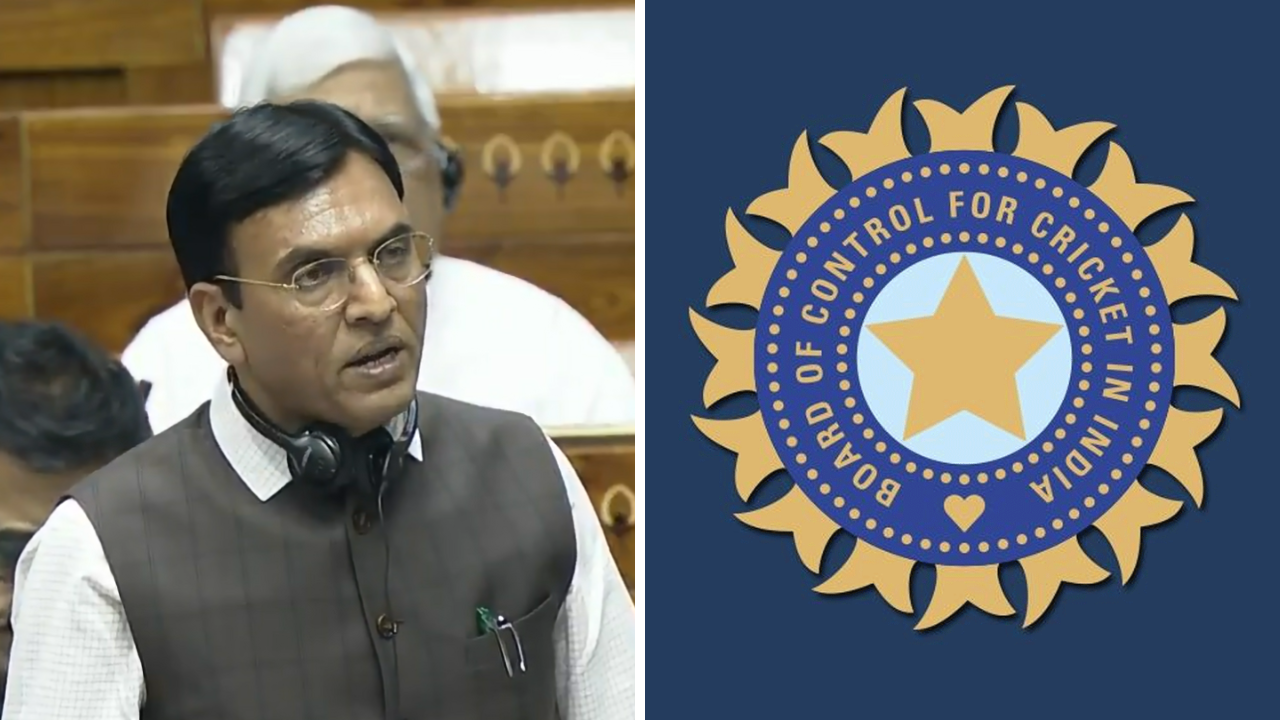
The Lok Sabha on Monday approved the long-pending National Sports Governance Bill, which Sports Minister Mansukh Mandaviya hailed as the “biggest reform in Indian sports since independence,” even as opposition parties staged protests over the revision of electoral rolls in Bihar.
The House also passed the National Anti-Doping (Amendment) Bill, 2025, after resuming its sitting at 2 pm following an early adjournment due to opposition disruptions.
Calling the sports governance bill a watershed moment, Mandaviya told the House (as per PTI): “It will ensure accountability, justice, and best governance in sports federations… It will have massive significance in India’s sports ecosystem.” He expressed regret over the absence of opposition participation during the introduction and passage of the bills, noting that many leaders had been detained while marching to the Election Commission over alleged voter data manipulation in Bihar.
Only two MPs spoke during the debate before opposition members returned and began raising slogans. Amid the commotion, both bills were passed by voice vote and the House adjourned till 4 pm.
Earlier, Digvijaya Singh, the Parliamentary Committee on Sports chairperson, had urged Speaker Om Birla to send the governance bill to the panel for deeper scrutiny, but Mandaviya emphasised the urgency, saying it was vital for building a “transparent, accountable, and world-class sports ecosystem” as India eyes a bid for the 2036 Olympics.
The minister outlined the bill’s decades-long journey, from early drafts in 1975 and 1985 to multiple stalled attempts, including a 2011 National Sports Code that never reached Parliament. “Despite being a large country, our Olympic performance has been unsatisfactory — this bill aims to change that,” he said.
Key provisions include:
- Creation of a National Sports Board (NSB) to enforce accountability, with powers to recognise or de-recognise National Sports Federations (NSFs).
- NSFs must hold timely elections and maintain transparent accounts to retain recognition.
- Establishment of a National Sports Tribunal with civil court powers, whose rulings can be challenged only in the Supreme Court.
- A revised age cap for sports administrators, allowing those aged 70–75 to contest if permitted by international federation rules.
- Bringing all recognised NSFs under the Right to Information (RTI) Act, with exemptions for bodies like the BCCI that do not depend on government funding.
The National Anti-Doping (Amendment) Bill addresses objections raised by the World Anti-Doping Agency (WADA) over “government interference” in the functioning of the National Anti-Doping Agency (NADA). While the original 2022 Act empowered a government-appointed board to oversee NADA, the amended version removes those powers, ensuring NADA’s “operational independence” in line with WADA requirements.
Mandaviya concluded (via PTI) that the reforms are “imperative for improving governance, performance, and excellence in Indian sport, especially ahead of the nation’s Olympic ambitions.”
For all sports updates, follow RevSportz




